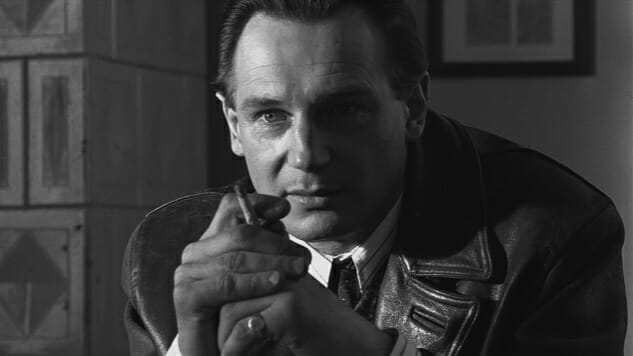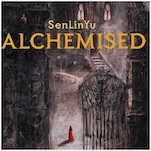The 13 Best Biopics on Netflix

What do an Indian revolutionary, a British prime minister, a blues musician, a hip-hop pioneer and a code breaker all have in common? You can watch a biopic about them on Netflix right now. Biopics, or biographical dramas, tell stories based on the real lives of their subjects, whether famous men and women doing great things or unknown individuals quietly leading extraordinary lives. Netflix has more than 40 films listed as Biographical Dramas. We’ve selected our favorites for you.
Here are the 21 best biopics on Netflix:
1. ChristineYear: 2016
Director: Antonio Campos
Stars: Rebecca Hall, Michael C. Hall, Tracy Letts, Maria Dizzia, J. Smith-Cameron, John Cullum, Timothy Simons
Rating: R
Why did TV journalist Christine Chubbuck take her life on camera in 1974? The brilliance of this Antonio Campos drama is that it tries to answer that question while still respecting the enormity and unknowability of such a violent, tragic act. Rebecca Hall is momentous as Christine, a deeply unhappy woman whose ambition has never matched her talent, and the actress is incredibly sympathetic in the part. As we move closer to Christine’s inevitable demise, we come to understand that Christine isn’t a morbid whodunit but, rather, a compassionate look at gender inequality and loneliness. —Tim Grierson
2. RRRYear: 2022
Director: S. S. Rajamouli
Stars: N. T. Rama Rao Jr., Ram Charan, Ajay Devgn, Alia Bhatt, Shriya Saran, Samuthirakani, Ray Stevenson, Alison Doody, Olivia Morris
Rating: NR
Runtime: 187 minutes
A Telugu epic rivalling even the over-the-top antics of writer/director S. S. Rajamouli’s previous massive blockbusters (the two Baahubali films), RRR’s endearingly repetitive and simple title reflects a three-hour romp through Indian colonial history filled with the primal pleasures of brotherhood and balls. Almost cartoonishly political, its story of star-crossed besties Alluri Sitarama Raju (Ram Charan) and Komaram Bheem (N. T. Rama Rao Jr.) is one focused on shallow contrasts masking bone-deep similarities. Based on two superheroicized revolutionaries—ones that never, but should have, saved a child by simultaneously bungeeing a tethered motorcycle and horse over opposite sides of a bridge—the at-odds heroes represent the rural and urban poles opposing the British colonizers. Caricatures of the urbane heartthrob and the noble backwoods beast, the two embodiments of cultural pride battle CG beasts, ridiculous Brits and each other—though you can’t help but hope they end up holding each other tight. (They do squats while riding each other piggyback. C’mon.) Their back-and-forth, glisteningly homoerotic friendship walks a taut narrative tightrope, but with the movie’s maximalist filmmaking as its balancing rod. A phenomenally thrumming and amusingly worded soundtrack accompanies some of the year’s most bombastic action sequences and charming dance scenes without mussing a single mustache hair. The two beefy and hyper-masculine leads span silent comedy, musical song-and-dance prowess and elegant fight choreography as the kind of do-it-all stars we just don’t get in the U.S. anymore. As their morally turbulent path rages against the pure evil of the cruel white oppressors, any doubt that RRR is a modern myth fades deep into the shadows of the jungle. Overflowing with symbols, political shorthand and stereotypes of all kinds, RRR rises, roars and revolts with raw cinematic power—and enough fascinating density to warrant watching and discussing over and over again.—Jacob Oller
3. Ma Rainey’s Black BottomYear: 2020
Director: George C. Wolfe
Stars: Viola Davis, Chadwick Boseman, Glynn Turman, Colman Domingo, Michael Potts
Rating: R
Fittingly, Chadwick Boseman’s final role is all about the blues. The late actor’s appearance in Netflix’s Ma Rainey’s Black Bottom, the August Wilson adaptation from director George C. Wolfe and writer Ruben Santiago-Hudson, is equal parts actorly showcase, angry eulogy and comprehensive lament—boiled together in the sweaty kitchen of a ‘20s Chicago recording session. A story of ambition’s multiple facets and eventual endpoints, Ma Rainey revolves around those orbiting its title character (Viola Davis). She’s a blues legend at the top of her game, finally appreciated (at least in some parts of the country) and ripe for exploitation by white men in suits. As if she’d let them. She’s comfortably late to record an album, leaving everyone else to kick up their heels and shoot the shit in true Wilson style—with Santiago-Hudson finding the essence of Wilson’s work. Davis’ brutal performance, made all the more potent by her avalanche of makeup and glistening sweat, perfectly sets the scene. She, alongside loosened neckties and whirring fans, gives the film its intended temperature and gravity so that Boseman and the rest of her band members can zip around like fireflies ambling in the summer heat. With tragic serendipity, Boseman leaves us a gift: he is on fire. Lean, with the camera placements and props emphasizing his gangly limbs (there’s a reason he wields a squashed and squat flugelhorn, a jazz staple that happens to work better visually), Levee is a highly physical role despite the chatty source material: It’s all about capturing attention, sometimes literally tap-dancing for it, with any ounce of shame overrun by an anxious energy. High-strung, twitchy and tense during a nearly five-minute monologue, Levee seems to sense the window to his dream is closing: Time is running out. Ma Rainey’s Black Bottom is more than Boseman’s performance, sure, with Davis and Colman Domingo going on some delicious tears of their own and Wilson’s words continuing to sear and soar in equal measure. But Boseman’s ownership of the film, an Oscar-worthy snapshot of potential and desire, gives an otherwise lovely and broad tragedy something specific to sing about.—Jacob Oller
4. RayYear: 2004
Director: Taylor Hackford
Stars: Jamie Foxx, Kerry Washington, Regina King, Clifton Powell, Harry Lennix, Bokeem Woodbine
Rating: PG-13
When making a list of biopics, Ray is sure to be near the top. Jamie Foxx portrays the legendary Ray Charles from his early days as a backing pianist on the “chiltin’ circuit” of African-American friendly venues, to his commercial peak in the late 1950s and early ’60s, including the recording of his most notable singles like “I’ve Got a Woman” and “Georgia on My Mind.” But what makes Ray a fantastic adaptation of Charles’ life isn’t just its focus on his musical career, but its brutally honest treatment of the late musician’s heroin addiction, legal troubles and tumultuous relationship with his wife Della Bea Robinson (Kerry Washington). Foxx shines in his most critically lauded role, mastering his imitation of the blind Charles like no one else could.
5. Darkest HourYear: 2017
Director: Joe Wright
Stars: Gary Oldman, Kristin Scott, Lily James, Stephen Dillane, Ronald Pickup, Ben Mendelsohn
Rating: PG-13
Darkest Hour is a film of flummoxed old white men hollering at each other, a perfect foil to (and double-bill alongside) Christopher Nolan’s Dunkirk, both because the two take place at about the same time during the early years of World War II—as Hitler’s world domination began to take shape and an invasion of the UK imminent—and because they are entirely different experiences: Dunkirk is all action, while Joe Wright’s film is all words. And with volume, those words gain weight—sound, in all of its ephemera and exigencies, is just as important to Darkest Hour as it is to Nolan’s visceral spectacle, except Wright’s are the sounds of bureaucracy and urbanity building to a fever pitch, and Nolan’s are the sounds of bodies in motion through time. Rarely has the uncomfortable, marrow-deep scritch of pen to paper bore such portent, except for maybe in Wright’s other period drama, Atonement. Silence erupts from the din of war—in that ebb and flow of Darkest Hour, Gary Oldman’s performance is formidable. Not only is his makeup beyond convincing (and undoubtedly Oscar-worthy), but Oldman understands that the bluster of what’s required of him to overcome the silliness of both his casting and facade must be balanced—countered and, all puns intended, fleshed out—in quiet. The film’s two most striking moments occur in silence: When Churchill allows his secretary (Lily James, impressively reserved) a moment with him to soundlessly ponder her brother’s death at Caille, and when, first addressing the nation on May 19th to tell white lies about the state of the British army and Hitler’s advance, Churchill’s silence is a palpable thing, felt until he breaks it with the onslaught of war propagandism, which Wright only stylizes via an aerial shot of a French battlefield landscape bombed to smithereens transitioning seamlessly into the landscape of a young corpse’s face, Bruno Delbonnel’s camera lingering on a vacant, clouded-over eye. Wright often pulls out to these aerial shots, relieving the audience of the claustrophobia of war bunkers and overly-festooned rooms and smoky halls full of flummoxed old white men with a God’s Eye perspective. This push-and-pull, between loud and quiet, between intimacy and vastness, deepens what could otherwise end up a mealy-mouthed glimpse at a moment too engorged on its own laudatory memorializing. Which is why Darkest Hour transcends its biopic trappings to work, almost despite itself. —Dom Sinacola
6. LovingYear: 2016
Director: Jeff Nichols
Stars: Ruth Negga, Joel Edgerton, Marton Csokas
Rating: PG-13
How well you like Jeff Nichols’ Loving will partially depend on what you look for in courtroom dramas. If you prefer judicial sagas made with potboiling slickness and little else, you’ll probably like Loving less than Nichols likes filming landmark legal proceedings. His film isn’t about the case of Loving v. Virginia as much as its two plaintiffs, Richard Loving (Joel Edgerton) and Mildred Jeter Loving (Ruth Negga), the married couple at the center of the 1967 civil rights victory over the United States’ anti-miscegenation laws. As an effect of Nichols’ focal point, the movie speaks little to no lawyer jargon and takes place almost entirely outside of the court rather than within. So if you’re sick to death of courtroom dramas that insist on pantomime, and if you think those kinds of stories demand more restraint, then you’ll probably dig on Loving. It so studiously avoids the clichés of its genre that it feels fresh, original, a completely new idea based on a very old, very formulaic one. It’s a disciplined, handsome, unfailingly serious screen reproduction of an important real-life moment in the nation’s ongoing fight for civil rights; it’s hitting theaters at a time when we’re still having cultural arguments about who gets to marry; and it’s directed by one of the critical darlings of contemporary cinema. This is the kind of anti-prestige movie critics yearn for, a product stripped away of non-artistic pretensions and ambitions, leaving only the art. —Andy Crump
7. MankYear: 2020
Director: David Fincher
Stars: Gary Oldman, Amanda Seyfried, Lily Collins, Arliss Howard, Tom Pelphrey, Charles Dance
Rating: R
To talk about screenwriter Herman J. Mankiewicz is to talk about Citizen Kane, which is to say it’s to talk about power, money, fulfillment, and success. And if you’re director David Fincher, to make a movie about Mankiewicz is to make a movie like Citizen Kane. A would-be insider epic held up by reference-heavy repartee and painted with all the aesthetics of the revolutionary movie, really this is a movie for Fincher to flex his film history—an earlier, more serious Hail, Caesar! with Orson Welles in the laurels and Mankiewicz on the cross. Netflix’s Mank might not nearly live up to its subject’s crowning achievement, but it’s still a dense and enjoyable cinematic rant that would make its central lout proud. At first, much of the film seems to rest on Gary Oldman’s performance as Mank, the rapscallion whose wit, writing, and refusal to stay sober ingratiated him with and infuriated so many. Possessing the standard writer’s one-two combo of alcoholism and self-loathing, Mank heads towards social and physical self-destruction. Thankfully—since Oldman’s creaky groan and wobble don’t belie much warmth, and his one-liners needed another draft before drawing the kind of (even mean-spirited) adoration the movie tells us they do—the movie quickly becomes the story of the shifting industry and political climate around ‘30s Hollywood during Mank’s time conceptualizing, then writing Citizen Kane. At times self-effacing and others completely self-involved, with an idealistic core and cynical view on Hollywood, Mank is a lot like its sloppy hero—likable enough, but capable of so much more.—Jacob Oller
8. First They Killed My Father Year: 2017
Director: Angelina Jolie
Stars: Sreymoch Sareum, Kompheak Phoeung, Sveng Socheata, Dara Heng, Sothea Khoun
Rating: TV-MA
We may tease or scorn actors for stepping out of the frame to hunker down behind the camera, because for whatever reason we’re only cool with artists when they stay in their lane. Think of Angelina Jolie’s First They Killed My Father as a democratic response, or, if you like, a defiant flip of the bird. It’s fitting that Jolie should be the actor to produce a film this accomplished. Recall the volume of shit shoveled on her for the release of 2014’s Unbroken, her Louis Zamperini biopic, and 2015’s By the Sea, the romantic drama she made with Brad Pitt: These were works met with deserved and undeserved response, both middling at best, but neither could be mistaken for being too vain. Whatever promise was found in her earlier movies is fully realized in First They Killed My Father, a brutal movie with a human heart. Jolie doesn’t gloss over the horrors of the Khmer Rouge. She knows honesty is the best way to face history and honor the dead, but she doesn’t find any nobility in the suffering of Loung Ung’s family as they flee from state-sanctioned genocide. First They Killed My Father’s emphasis falls on Loung, on the violence paraded before her young eyes, Jolie mining tragedy not for a misguided sense of importance but for an experiential scope and for, most of all, empathy. —Andy Crump
9. Come Sunday Year: 2018
Director: Joshua Marston
Stars: Chiwetel Ejiofor, Martin Sheen, Danny Glover, Jason Segel, Condola Rashad, LaKeith Stanfield
Rating: TV-14
In the early 2000s, Bishop Carlton Pearson, a respected Tulsa pastor with a large following, risked heresy by changing his tune, arguing that God wouldn’t send people to hell—even if they didn’t believe in Him. Inspired by a This American Life episode, Come Sunday charts Pearson’s dark night of the soul as he struggles with his conscience and faces the anger of both his superiors and his flock. Chiwetel Ejiofor has portrayed anguish before—most notably in 12 Years a Slave—but the spiritual suffering on display in Come Sunday requires an especially nuanced actor. Neither strident nor blandly pious, Pearson is a man who simply wants to communicate God’s will to the world—except he’s no longer sure if what he’s been raised to believe about God punishing nonbelievers is true. It’s hard to convey something as interior as faith on screen, but Ejiofor does it with heavenly grace. —Tim Grierson
10. The KingYear: 2019
Director: David Michôd
Stars: Timothée Chalamet, Joel Edgerton, Robert Pattinson, Lily-Rose Depp, Sean Harris, Ben Mendelsohn
Rating: R
Heavy is the head that wears the crown, and for Timothée Chalamet’s Henry IV, it proves nearly unbearable. It’s a heaviness that at times pervades the 140-minute film to its detriment. Still, Chalamet’s performance as the young prince “Hal” who must learn to navigate both court and battlefield is mesmerizing to watch, surrounded by a strong cast and cinematography that deserved more time on a big screen. Based partly on Shakespeare’s plays, partly on history and partly on Michôd’s own imagination, the internal conflicts are every bit as elevated as the Battle of Agincourt depicted in The King. Though he prefers peace, he’s manipulated by his advisors into attacking France, his former drinking companion Falstaff (co-writer Joel Edgerton) his now trusted lieutenant. It’s an epic tale of a reluctant king, a political betrayal and a deadly war. —Josh Jackson
11. Roxanne Roxanne Year: 2018
Director: Michael Larnell
Stars: Chanté Adams, Mahershala Ali, Nia Long, Elvis Nolasco, Kevin Phillips, Shenell Edmonds
Rating: TV-MA
The importance of a story like Roxanne Roxanne making it to the big (streaming) screen cannot be understated. Roxanne Shanté, born Lolita Shanté Gooden, started rapping when she was just a child. She was a prodigy, going on to become the best battle rapper in Queens, New York. She would go on to suffer through and survive an abusive relationship with a statutory rapist who she fell in love with, just as her talent was beginning to catch the attention of record producers. Clashes with her mother and her absentee father made her life in the Queensbridge housing projects all the more complicated. I love that Roxanne Roxanne exists. I want everyone to see it (and to become familiar with new talent Chanté Adams as Shanté). But I also know that this could have been a much better work of art. There is plenty to enjoy from writer/director Michael Larnell’s presentation of Roxanne Shanté’s story. The ’80s New York vibe is all the way there, and I can’t be mad at some great moments we get to witness: Roxanne Shanté vs. Sparky D; a shy, young boy in Shanté’s projects, named Nasir, who wants to be a rapper; and an unknown Biz Markie beat boxing for Roxanne when her DJ (Marley Marl) bails on her. But as a whole, the film is missing an emotional pulse that was likely sacrificed in an attempt to emphasize the difficulties that Shanté endured as a young girl. Shanté’s personal and artistic experiences are ultimately hijacked by the men in and around her life, whose failures ultimately dominate her story. This should have been a female-centric narrative, weaving personal experiences with the art of rhymes and battle rapping. Instead, Larnell spends much of the time exploring the impact of men in Shanté’s life (men who steal, rape, take and beat), while, unfortunately, eclipsing her incredible accomplishments. The stories yearning to be told—of motherhood, of struggle, and sisterhood, and friendship and first (highly problematic) love for a girl who doesn’t quite know what good love looks like—are all there on the surface of Larnell’s film. We are desperately in need of more movies concerned with women in rap, women from the projects, women in relationships with men like Cross—and women who refuse to be defined by any one of these things—but we also desperately need the writers and directors who take on the stories of such women to push beyond the surface and give us the excellence we deserve. —Shannon M. Houston
12. The Imitation Game Year: 2014
Director: Morten Tyldum
Stars: Benedict Cumberbatch, Keira Knightley, Matthew Goode, Rory Kinnear, Allen Leech, Charles Dance
Rating: PG-13
The historical thriller The Imitation Game is precisely the type of film studios love to dangle as Oscar bait. It focuses on a relatively unknown, yet significant, World War II code-cracking project and features a socially awkward genius as its protagonist. It doesn’t hurt that the aforementioned hero and his compatriots are Brits. Noted mathematician and cryptanalyst Alan Turing is often considered the father of modern computer science, but his most consequential work—conducted as a WWII codebreaker—remained largely unknown until the British government declassified related documents in the 1970s. The Imitation Game, with Benedict Cumberbatch as the eccentric Turing, focuses on his wartime tenure at the Government Code and Cypher School in Bletchley Park, located about 50 miles northwest of London. In the confines of the nondescript Quonset Hut 8, Turing leads a team of prototype hackers to decipher Germany’s Enigma machine codes. Their work is said to have shortened the length of the war by several years. Cumberbatch gives an intense performance as the brilliant loner with behavior that registers along the autism spectrum. While he indulges in too much scenery chewing and stammering, Cumberbatch creates a memorable character who is at once fascinating and off-putting. The only person squarely on Turing’s side is Joan Clarke (Keira Knightley), an astute mathematician recruited for the testosterone-heavy team. Knightley shows off a dynamic range as she plays a dutiful daughter, torn between obligations to her parents and her country. Norwegian director Morten Tyldum, known best for 2011’s Headhunters, and scribe Graham Moore keep the tension high, even when the hackers and decoders are conducting tedious work. The supporting actors transcend their one-note characters and capture the audience’s attention. —Christine N. Ziemba
13. The Trial of the Chicago 7Year: 2020
Director: Aaron Sorkin
Stars: Eddie Redmayne, Alex Sharp, Sacha Baron Cohen, Jeremy Strong, Yahya Abdul-Mateen II, John Carroll Lynch
Rating: R
There’s a scene toward the end of Aaron Sorkin’s interpretation of the 1969 trial of the Chicago 7, aptly titled The Trial of the Chicago 7, where political activist, unapologetic spitfire and constitutional jester Abbie Hoffman (Sacha Baron Cohen) is called to give testimony over the events of the 1968 Democratic National Convention. To summarize: The occasion ended in riots, and Hoffman is one of several others—Tom Hayden (Eddie Redmayne), Rennie Davis (Alex Sharp), Jerry Rubin (Jeremy Strong), David Dellinger (John Carroll Lynch), and fall guys Lee Weiner (Noah Robbins) and John Froines (Daniel Flaherty)—accused of inciting the chaos. When asked whether he has contempt for his government, Abbie replies that “I think the institutions of our democracy are wonderful things that right now are populated by some terrible people.” His words make up the perfect distillation of Sorkin’s aesthetic, being both a poetically written, powerfully spoken slice of dialogue as well as an eye-rolling fabrication. Hoffman never said anything of the sort, and he never would have because he was an anarchist, not an institutionalist. But the full-Sorkin grandstanding and speechifying at play in the film is so good and so clearly demonstrates his strengths as a writer and filmmaker that fuzzing up the truth doesn’t meaningfully stymie the viewing experience. In fact, The Trial of the Chicago 7 may be his sharpest, most well-made movie yet, an ensemble picture where the focus is on courtroom sparring matches, demonstration reenactments and a sprinkling of archival footage, as well as a predictable game of connect-the-dots between America 51 years ago and America today. But by sanding history’s edges, he turns the story into straightforward crowd-pleasing entertainment for a moment where straightforward crowd-pleasing entertainment about social justice and systemic malfeasance is needed. —Andy Crump







































